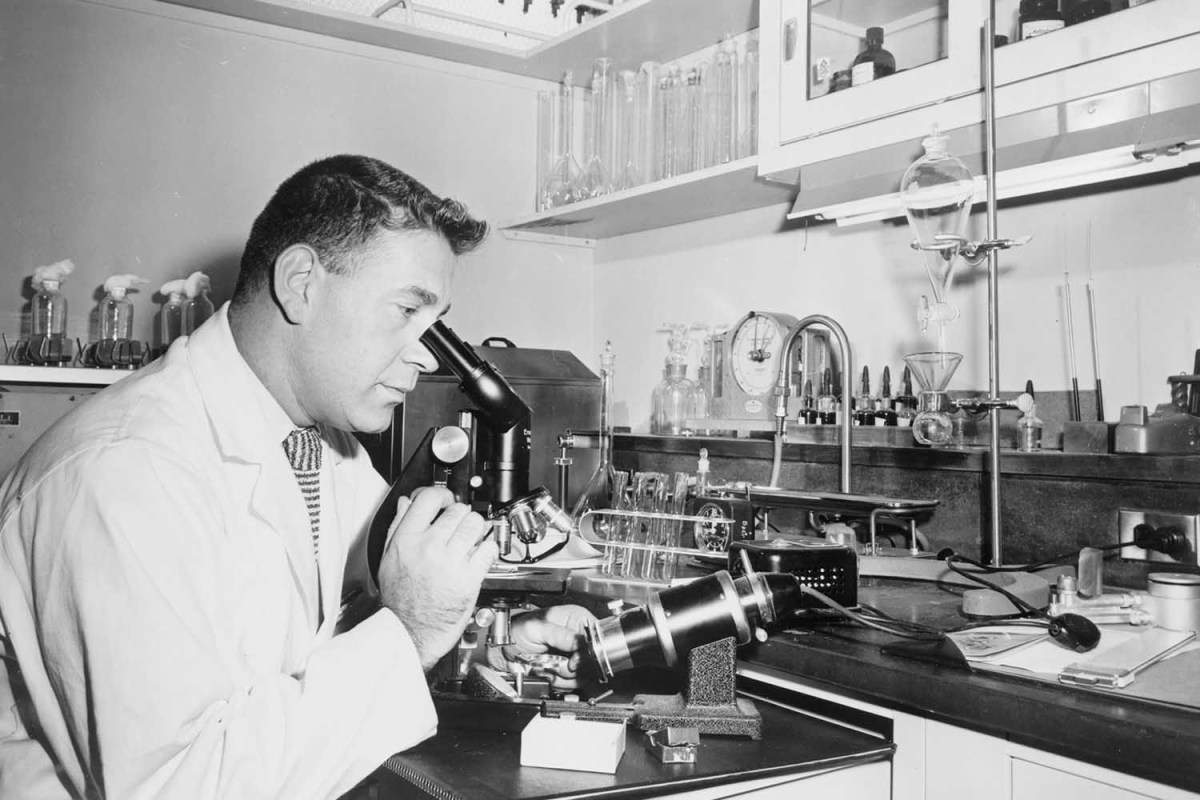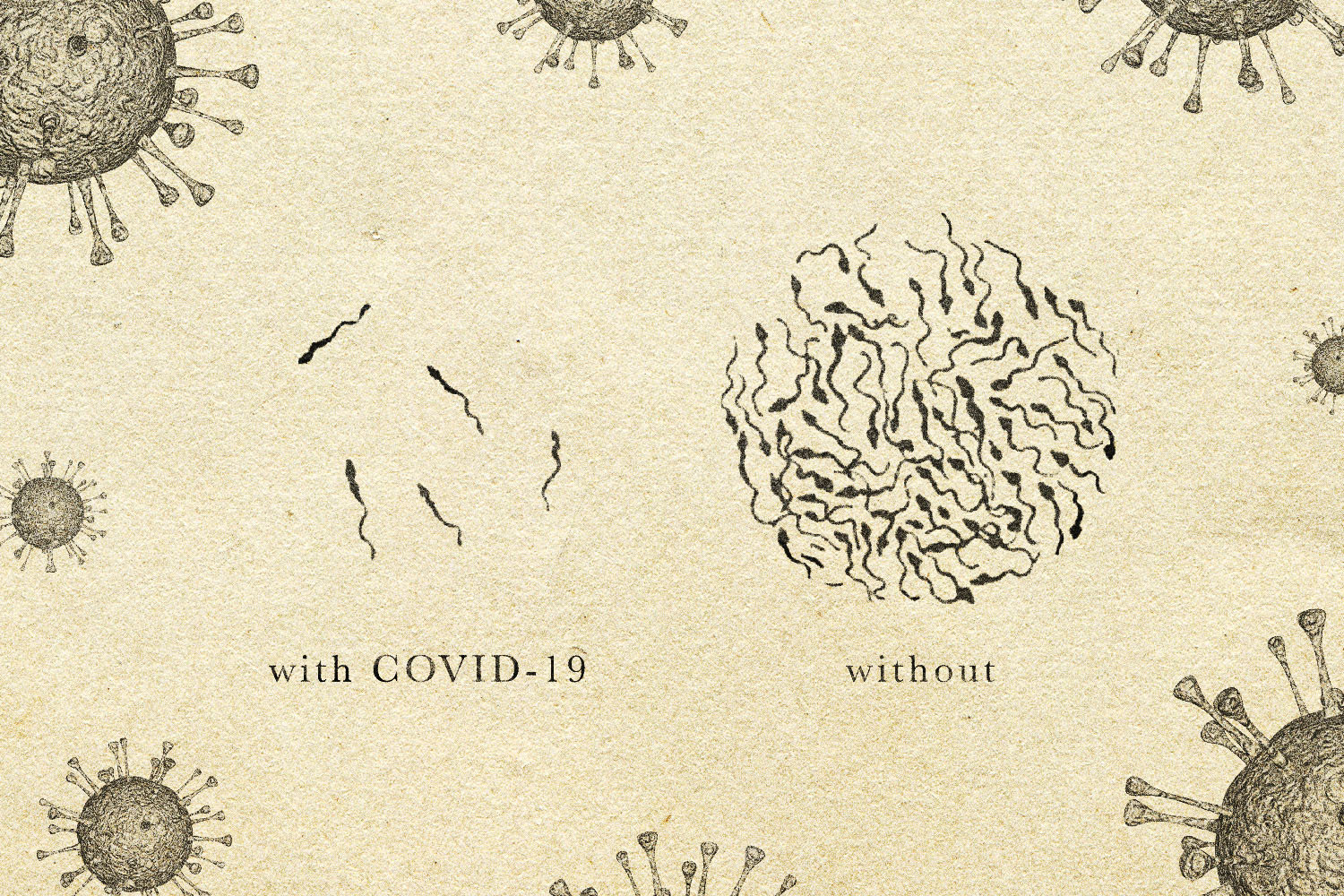If you’re a person with testes looking to conceive a child sometime soon, checking the quality of your sperm is essential. Fertility rates have dropped steeply over the past six decades, and while the burden of infertility often falls exclusively on women, male factors play an equally role in a couple’s ability to conceive.
“Men can check the quality of their sperm at any time, but it’s particularly important for men who are trying to conceive,” Dr. Sanaz Ghazal, the Co-Founder and Medical Director of RISE Fertility and an expert in fertility, including male infertility, tells InsideHook. “Infertility isn’t just a woman’s problem, and in fact, male infertility is the primary factor in about 20 to 30 percent of couples who are struggling to get pregnant and a contributing factor in another 20 to 30 percent of cases.”
Sperm abnormalities are common, Ghazal adds. “So know that you are not alone. Assessing the health of the sperm is an essential part of the fertility evaluation and often helps to guide the next steps.”
But before they can address next steps with their patients, doctors must do a semen analysis, which is the main test used to assess the health and quality of sperm explains Ghazal. “When looking at a semen analysis, there are three key pieces of information that doctors look at.”
The first is sperm concentration, or how many sperm are present. A normal sperm concentration is at least 15 million sperm per milliliter of ejaculate and can range to 200 million sperm per mL of semen. A low sperm count constitutes anything below 15 million/mL.
Still, having a low count doesn’t eradicate your chances of fathering a child — many men with low sperm counts are still able to conceive — but a lower count can decrease the chances of a sperm fertilizing an egg, thus making it a tad more difficult to get pregnant. Further, 10 percent of infertile men and one percent of all men have a condition called azoospermia, a term used when there is a total absence of sperm in a man’s ejaculate. This condition can be caused by a blockage along the reproductive tract, genetic conditions, hormonal issues or problems with testicular structure/function.
Next to concentration, fertility specialists will also look at how well the sperm is movin’ and groovin,’ which is technically referred to as sperm motility. In order for a sperm to successfully weed its way through the cervical mucus to fertilize an egg, it needs to have progressive motility (moving in a forward direction) of at least 25 micrometers a second — and you want at least 32% of those little guys to be progressively motile. Anything less is considered low motility, or asthenospermia.
And finally, sperm morphology. This refers to whether or not the sperm are, essentially, normal looking.
A normal sperm has an oval-shaped head with a neck and tail. Any deformations found in the sperm’s head, neck or tail might lead to complications when conceiving, particularly with the sperm’s head shape, which can affect its ability to penetrate the outer surface of the egg. However, sperm morphology can be subjective, and some percentage of sperm can always be misshaped. Basically, you can still get someone pregnant with your weird-looking sperm, it just might take longer. Research has shown higher fertilization rates when normal morphology is greater than 14%.
So what should you do if one or more of these factors is amiss?
“If the semen analysis shows some abnormalities or if you have concerns about the health of your sperm, the first step is to see a board-certified Fertility Specialist,” recommends Ghazal. “We review your medical history, identify risk factors, and go over your semen analysis results in detail with you. This may prompt additional evaluation or testing, such as hormone or genetic testing, imaging, or even referral to a Reproductive Urologist.” Your doctor will likely go over alternatives to conceiving naturally like in vitro fertilization (IVF) or intrauterine insemination (IUI).
Consulting with a doctor is also impertative before starting any type of medication, supplement, treatment or hormone therapy, stresses Ghazal. “Be aware that some medications and supplements can actually be very harmful to sperm and sperm production, especially if you are trying to conceive or want to have children in the future.”
What can cause sperm abnormality?
If something’s awry with your sperm you’re probably wondering what’s causing it. Well, there’s no single answer, abnormal sperm can be the product of a variety of reasons. As briefly mentioned above, genetic conditions and hormonal issues can be outliers, along with STIs (looking at you, Nicki Minaj’s cousin’s friend.) Age also plays a role.
“We all know that fertility declines with age and even though a woman’s fertility deteriorates more rapidly through her 30s and 40s, sperm can also show signs of decline with age,” says Ghazal. “The decline in sperm quality can be seen in men in their 40s and may be more pronounced in men over the age of 50. The DNA in the sperm can become more damaged and fragmented over time, which can decrease the viability, functionality, and efficacy of the sperm.”
But so can your lifestyle choices, including a particular cannabinoid, unfortunately.
“Certain lifestyle factors can also affect the quality and health of your sperm,” sayse Ghazal. “Optimize your health by managing chronic diseases like diabetes, maintain a healthy weight through a well-balanced diet and regular exercise, take a multivitamin, and avoid smoking or marijuana use, which can be very toxic to sperm.”
While infertility is a frustrating, sometimes embarrassing, problem to deal with, as Ghazal notes above, it’s an extremely common one that now, luckily, has myriad solutions — if you’re diligent. Besides looking into alternative options like IVF and IUI, freezing your sperm might be a practical choice depending on your circumstance.
“Men choose to freeze their sperm for a variety of reasons. Some men may choose to freeze sperm before starting treatments, therapies or medications that may be harmful to sperm such as chemotherapy, certain hormone therapies, or surgical procedures that may affect sperm production,” explains Ghazal.
Infertility is a lot to grasp, but the most important thing you can do for yourself and your partner, ultimately, is to stay mindful about the role you and your little swimmers play. Keeping tabs on how your sperm is shaping up is an integral step forward.
The Charge will help you move better, think clearer and stay in the game longer. Subscribe to our wellness newsletter today.
























